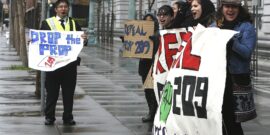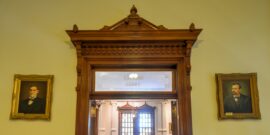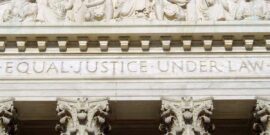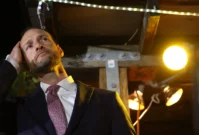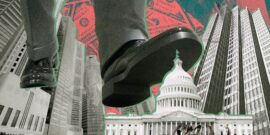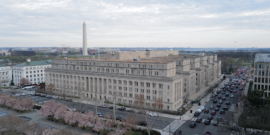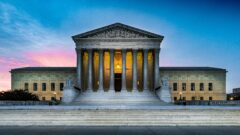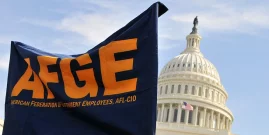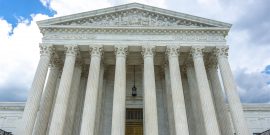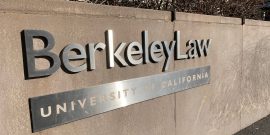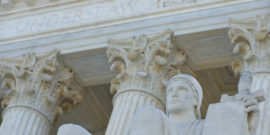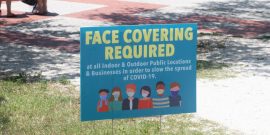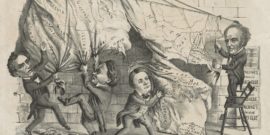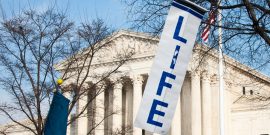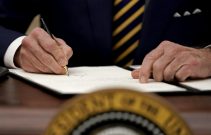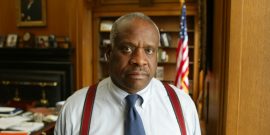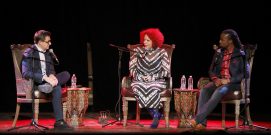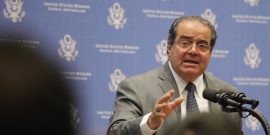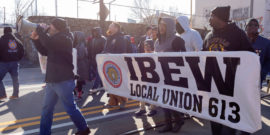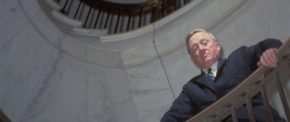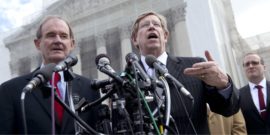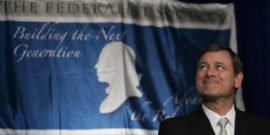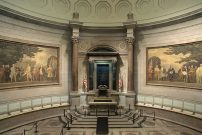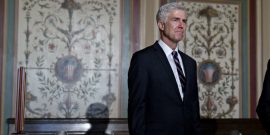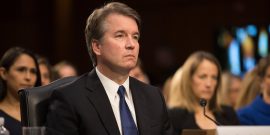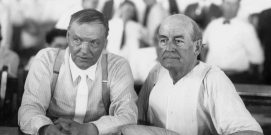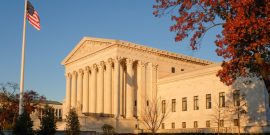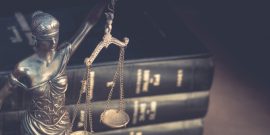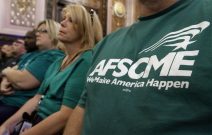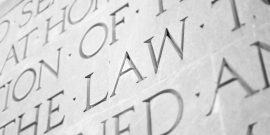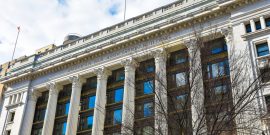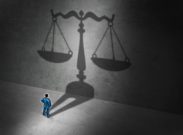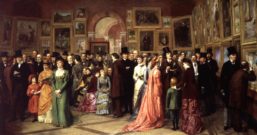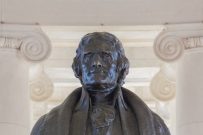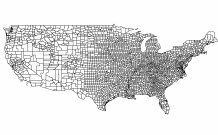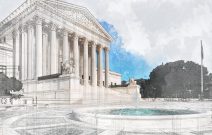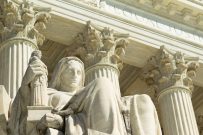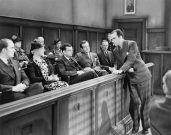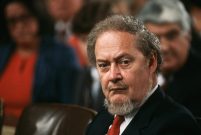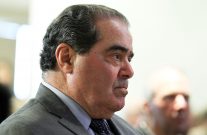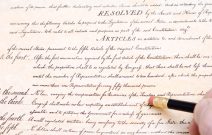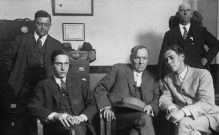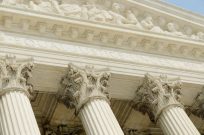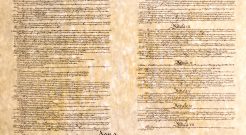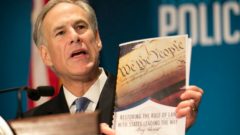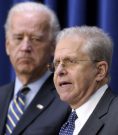Despite the Supreme Court’s turn against racial preferences, special interests in California seek to gut the state’s non-discrimination protections.
Mark Pulliam
Martin v. Boise is an abomination that has wreaked havoc on cities across the Ninth Circuit.
In the Lone Star State, a long-running legal challenge to “release time” in public-employee union contracts approaches its finale.
Arbitration is not ideal, but it is almost always preferable to the alternative: going to court.
Is conservativism in America tainted by a long-deceased agitator few people have ever heard of?
The election of a rogue prosecutor can completely alter the operation of the criminal justice system. By the time voters notice, it's too late.
There are reasonable ways to reform conservative economic policy, but they don't involve recycled socialist talking points.
New York Times v. Sullivan was a radical decision that revolutionized libel law.
Pervasive recalcitrance on the part of federal bureaucrats undermines the foundation of representative self-government.
An extended diatribe against the proponents of limited government and free markets perpetuates, rather than debunks, economic myths.
Liberal law professors used to love the Court's Justices unconditionally. Now they're starting to criticize little things they do.
The Waco siege was a watershed event of the 1990s. But most people tended to see what they wanted to see.
Not Accountable revives the constitutional objections to “collective bargaining” by public servants. Will Americans listen this time?
If the Court is not to function as a “bevy of Platonic Guardians,” its self-proclaimed power of judicial supremacy must be rejected.
The left’s hegemony in the legal academy is so total that opponents of originalism no longer feel it necessary to make an original (or convincing) case.
Alaska is a magnificent state. Is its untamed, unspoiled splendor an asset or a defect?
Even the most sagacious among us can be snookered by manipulative con men
The current Supreme Court, while superficially diverse in terms of race, sex, and ethnicity, displays remarkable homogeneity.
Merle Haggard had a distinct cultural lane that he stuck to: patriotic, conservative, and old-fashioned.
A Texas lawsuit challenges the CDC's authority to require masks on airplanes and in airports. Will it succeed?
The (Un)Written Constitution would turn back the clock to the halcyon days of freewheeling judicial activism.
The omnipresence of slavery at historic sites today seems intended to tarnish remarkable achievements and promote the cause of identity politics.
Once a state reaches a certain degree of political uniformity, it tends to repel those who disagree and attract fellow adherents.
Several proposed ABA accreditation rules changes demand ideological conformity and possibly violate faculty’s academic freedom.
What happened to the Boy Scouts of America, the once venerable youth organization that taught boys to be young men and productive citizens?
Over a year of CDC flip-flops and credibility-straining pronouncements leave a compliant public skeptical. Vaccinated Americans yearn for normalcy.
Why Eden’s fatal sin is a necessary virtue in this mortal coil.
Opponents of the Leviathan will find no succor in the imagined panacea of nullification.
Wishful thinking by conservative scholars opposed to abortion is an activist impulse that must be resisted.
In order to achieve primacy, the leftist mythology requires that the pantheon of American heroes be dethroned.
Less than a year after the decision was issued, the “major initiative” represented by Bostock has guaranteed the inevitable consequences.
Organized labor is finding the Biden administration immensely useful in helping it attempt to restore its former glory. But is it too late?
A pilgrim’s journey is his own, and Justice Clarence Thomas has the confidence and self-awareness not to doubt his choices.
Like a frog in the proverbial pot of boiling water, we are now immersed in the suddenly-ubiquitous delusion of wokeness.
One thing is sure: Antonin Scalia is one of the greatest jurists of all time, for all the right reasons.
The Unelected addresses a timely subject, and one that is vital to the future of the United States as a constitutional republic.
The NRA has come to symbolize the Left’s hatred of guns, Donald Trump, and the “deplorables” they imagine comprise NRA members.
A healthy polity cannot exist without a viable middle class, and unions can't help recreate one.
Attempting to portray the quintessential judicial activist as a victim of political skullduggery is like putting lipstick on a pig.
If the most powerful and well-connected can be victimized by lawfare, what hope would ordinary citizens have against a vindictive prosecution?
Hoffer's theme is that sage-like courts serve as a barometer of the zeitgeist—except when they rule against the causes favored by the Left.
Will bellbottoms, platform shoes, and disco enjoy a similar revival? Don’t count on it; only some retro fashions qualify as “woke.”
Still engaged in an atavistic class struggle, organized labor operates as a monopoly—long outlawed in every other sphere of the economy.
The Left, having gained hegemony in so many spheres of American life, has grown frustrated at its failure to extinguish the opposition in legal academia.
Strang’s exploration of natural law as a justification of originalism is provocative and could move the debate in a new direction.
Mobility enables Americans to improve their well-being by pursuing more attractive opportunities elsewhere in this magnificent, sprawling country.
Justice Neil Gorsuch offers up a national civics lesson for a country that greatly needs it.
Employers were not primarily responsible for violence in labor disputes.
Mollie Hemingway and Carrie Severino—both seasoned Washington hands—expose a tale of political intrigue more hair-raising than the conventions of fiction.
The Silicon Valley nouveau riche are different from the rest of us; they are more grandiose.
Almost all of the “conventional wisdom” concerning the Scopes trial is false and was manufactured to meet the needs of the new provincialism.
The pursuit of extra-constitutional natural law theories makes for strange bedfellows.
One of the more widely embraced myths of labor law is the Norris-LaGuardia Act of 1932 ending federal courts enjoining peaceful labor protests.
“Adversity scores” are the latest gimmick to justify racial preferences in college admissions.
Now that the “woke” activists at Harvard—intent on devouring their own—have humiliated an African-American trailblazer, who will be their next target?
A respected writer sullies his legacy with a tendentious partisan screed.
The eternal quest for the missing constitutional clause that will provide the answers the academy wants.
Pragmatism plays a role in constitutional interpretation—and stare decisis.
The real lesson of Janus is that the Court is no longer infatuated with the National Labor Relations Act and its doctrinal baggage.
Justice McReynolds delivered the unitary dissent, departing from the prepared opinion to scornfully declare that the Constitution “is gone.”
Carlson has a serious point: How should the nation’s various maladies be addressed by our political system?
Are American voters ready to elect a President who openly questions the relevance of the Constitution (or who live-streams his dental hygiene visit)?
The era of Lathrop’s “goose-stepping brigades” is about to end.
The era of government-compelled financial support of public sector unions is finally over.
The pro bono banner is calculated to deceive, even as it exemplifies the legal profession’s vanity and arrogance.
The legal profession's pro bono obsession leads to the question, “who benefits?”
Bail reform—including the elimination of the bail system—has become a fashionable policy position for would-be wonks.
Philip Hamburger's Liberal Suppression is nothing if not ambitious, but is it persuasive?
Will the American Bar Association intervene to prevent the Left’s Kulturkampf in the nation’s law schools?
Peter J. Wallison's Judicial Fortitude offers a brief and accessible introduction to the struggle to control the administrative state.
Alaska is the antithesis of hipster mecca Austin—in a good way
How did Title VII’s ban on discrimination become the basis for regulating sexual innuendo, lewd comments, and other risqué conduct in the workplace?
The governance model that has led to this dysfunction in legal education must be replaced.
Tocqueville’s hopeful vision of the legal profession was naïve.
The American legal system's rejection of "Loser Pays" does not reflect a rejection of feudal hierarchies, but the triumph of the legal class.
James Fitzjames Stephen's Liberty, Equality, Fraternity remains the best response to John Stuart Mill, and the politics of unfettered progress.
In Thomas Jefferson—Revolutionary: A Radical’s Struggle to Remake America historian Kevin Gutzman examines the legacy of Jefferson.
The lack of balance in the legal academy is a serious problem, and it's getting worse.
“Local control” is not a panacea, and is not always consistent with constitutional design.
The federal judiciary has become dominated by what Glenn Harlan Reynolds calls Front-Row Kids—a credentialed elite with a prescribed resume.
A badly-flawed precedent is about to get KO’d in a rematch of a contest that last ended in a draw.
The Fifth Circuit should overrule the federal district judge in M.D. v. Abbott and put an end to the judicial interference with Texas’ foster care system.
Unelected judges distort democracy when they unjustifiably dictate the allocation of taxpayer funds in contravention of political choices.
When jurors disregard their instructions, are they promoting liberty—or anarchy?
Dean Erwin Chemerinsky deserves credit for bucking the Left’s agenda to silence disfavored speech.
Bork dabbled with—and rejected—“judicial activism” before founding modern originalism
Property owners have been skirmishing with the federal government over Endangered Species Act designations for many years.
Will does little to resolve the tension between the libertarian model of constitutional theory and the conservative approach he purports to uphold.
Mark Pulliam writes from East Tennessee. A Big Law veteran, he retired as a partner in a large law firm after practicing for 30 years. A contributing editor to Law & Liberty since 2015, Mark also blogs at Misrule of Law. He considers himself a fully-recovered lawyer.
